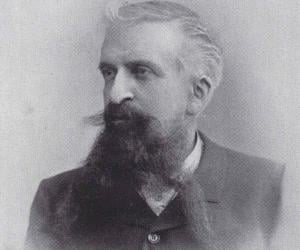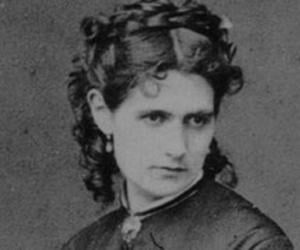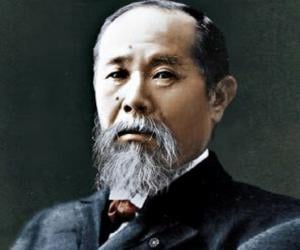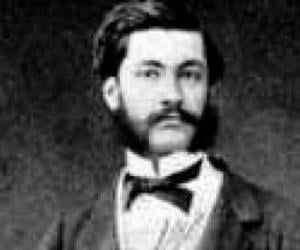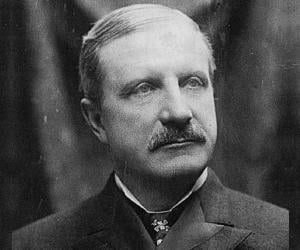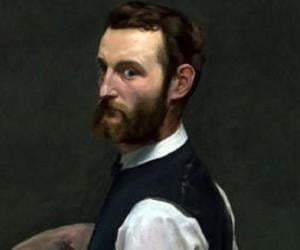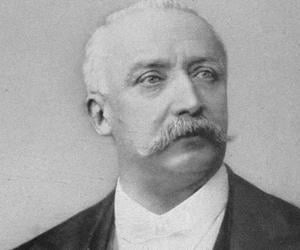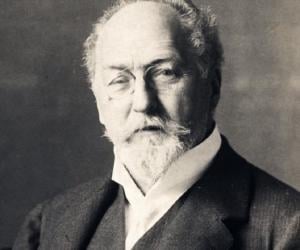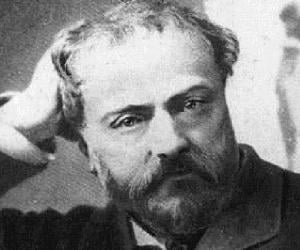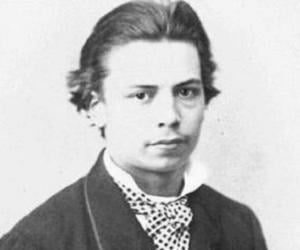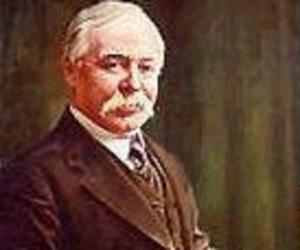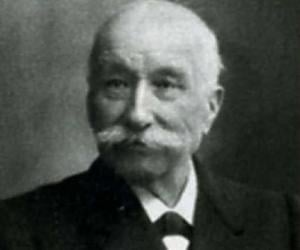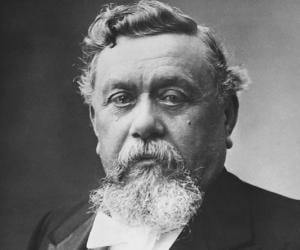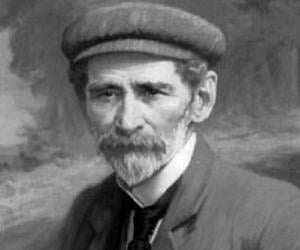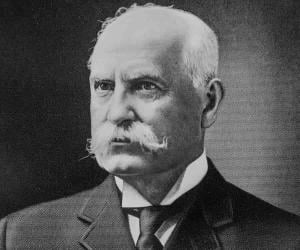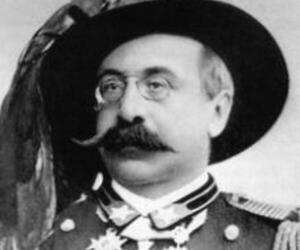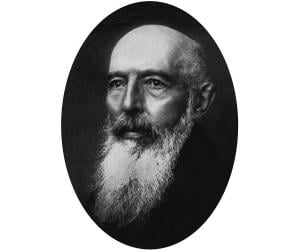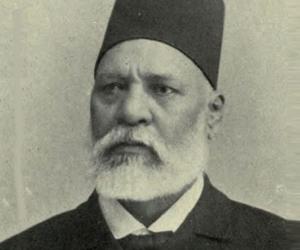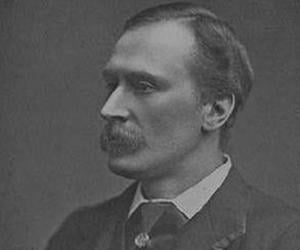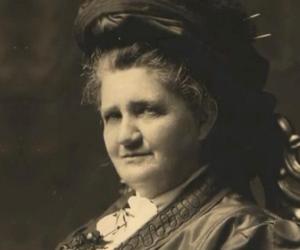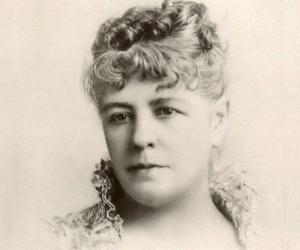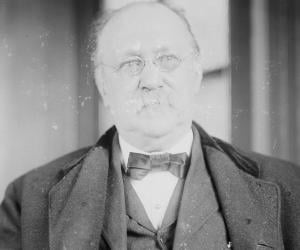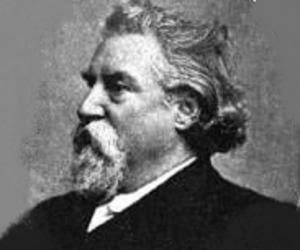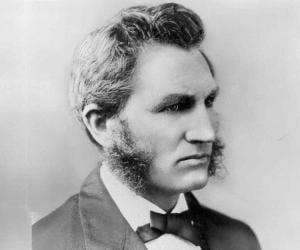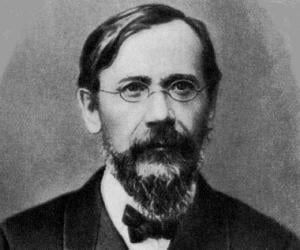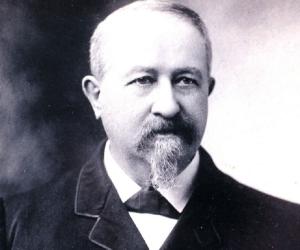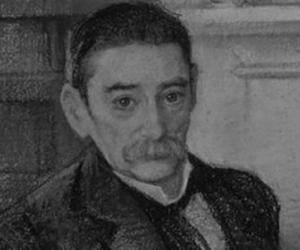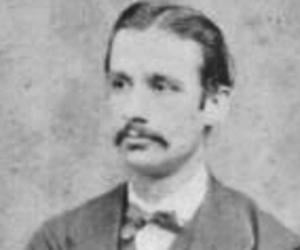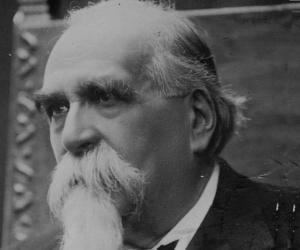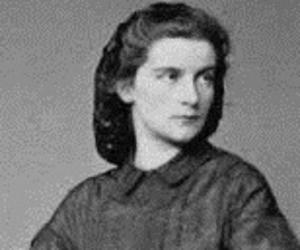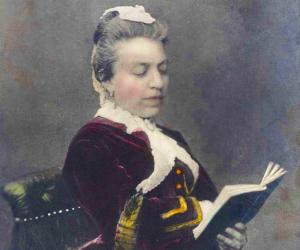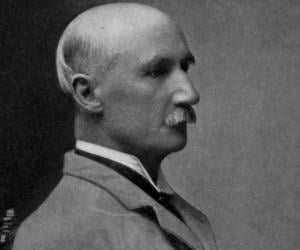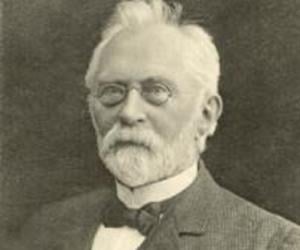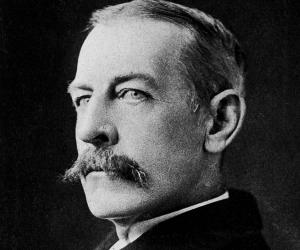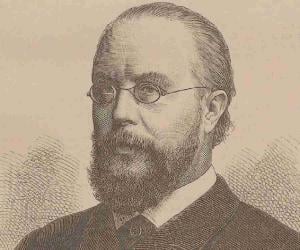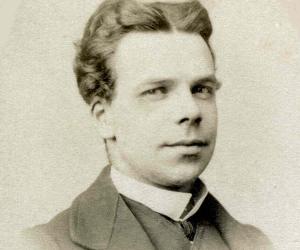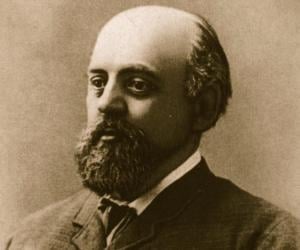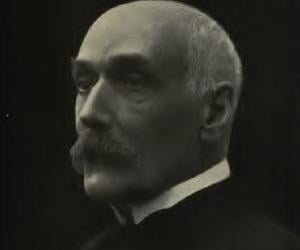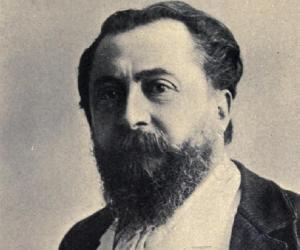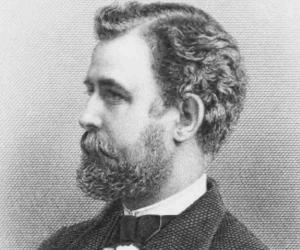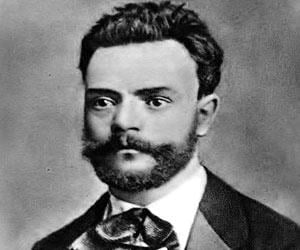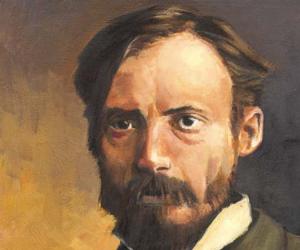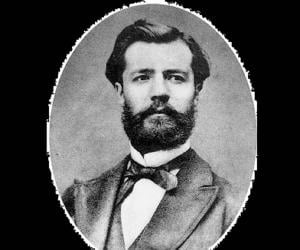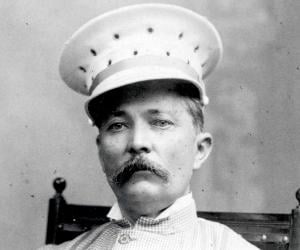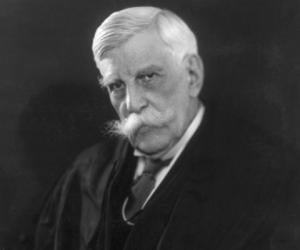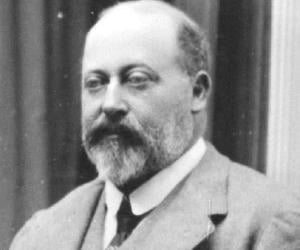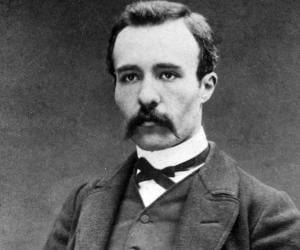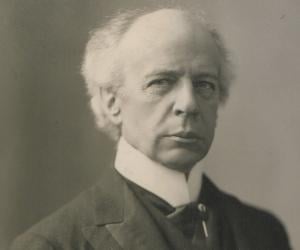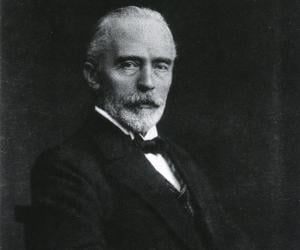Famous People Born In 1841
Discover the most famous people born in 1841. The list includes people like Edward VII, Pierre-Auguste Renoir, Henry Morton Stanley, Georges Clémenceau, Theodor Kocher and many more. This list of celebrities is loosely sorted by popularity. People featured on this list, include political leaders, artists, composers and journalists born in 1841. This list includes people from France, United Kingdom and many more countries.
Vote for Your Favourite Person
Right IconThis ranking is based on an algorithm that combines various factors, including the votes of our users and search trends on the internet.
1
Antonín Dvořák(One of the First Czech Composers to Achieve Worldwide Recognition)
Birthdate: 8th September
Sun Sign: Virgo
Birthplace: Prague, Czech Republic
Died: May 1, 1904
Antonín Dvořák was a Czech composer who achieved worldwide recognition for his works. His life and career inspired the 1980 historical biographical film Concert at the End of Summer, in which Dvořák was played by actor Josef Vinklář. Canadian children's author Ian Krykorka has based many of his works on some of Antonín Dvořák's operas.
Birthdate: 25th February
Sun Sign: Pisces
Birthplace: Limoges, France
Died: December 3, 1919
French artist Pierre-Auguste Renoir, father of actor Pierre Renoir and director Jean Renoir, was a key Impressionist painter. His best-known works include The Swing, Diana, and Seated Girl. He was known for his use of vibrant colors and feminine sensuality in his works. He also painted landscapes and portraits.
Birthdate: 29th July
Sun Sign: Leo
Birthplace: Constantinople, Ottoman Empire
Died: November 19, 1925
Henri Fayol was a French mining engineer, author, mining executive, and director of mines. He is credited with developing a theory of business administration called Fayolism. Along with Frederick Winslow Taylor, Henri Fayol is credited with founding modern management methods.
4
Henry Morton Stanley(Welsh-American Explorer Who Was Famous for His Exploration of Central Africa and His Search for Missionary David Livingstone)
Birthdate: 28th January
Sun Sign: Aquarius
Birthplace: Denbigh, Denbighshire, Wales
Died: May 10, 1904
Henry Morton Stanley was a Welsh-American explorer, journalist, colonial administrator, soldier, politician, and author. He is remembered for his exploration of central Africa and his search for the source of the River Nile. Stanley received an honorary title of knighthood in 1899. His life and career inspired the 1939 movie Stanley and Livingstone, where Stanley was played by Spencer Tracy.
Birthdate: 8th March
Sun Sign: Pisces
Birthplace: Boston, Massachusetts, United States
Died: March 6, 1935
6
Edward VII(King of the United Kingdom and the British Dominions, Emperor of India (1901 - 1910))
Birthdate: 9th November
Sun Sign: Scorpio
Birthplace: London, England
Died: May 6, 1910
Edward VII, the King of the United Kingdom of Great Britain and Ireland and Emperor of India from 22 January 1901 until his death, is said to have played a role in the reorganisation of the British Army after the Second Boer War. His main interests lay in the fields of foreign affairs and naval and military matters.
Birthdate: 28th September
Sun Sign: Libra
Birthplace: Mouilleron-en-Pareds, Vendee
Died: November 24, 1929
Georges Clémenceau, or The Tiger, who had served as the French prime minister, is remembered as a key figure of the French Third Republic. He not only played a major role in the Allied victory in World War I, but was also a key framer of the Treaty of Versailles.
8
Gustave Le Bon
(French Polymath)
Birthdate: 7th May
Sun Sign: Taurus
Birthplace: Nogent-le-Rotrou, France
Died: December 13, 1931
French social psychologist Gustave Le Bon is best remembered for his research on crowd psychology. In his iconic work La psychologie des foules, or The Crowd, he stated that people are driven by their emotions and not by their intellect when they act as part of a crowd.
Birthdate: 14th January
Sun Sign: Capricorn
Birthplace: Bourges, France
Died: March 2, 1895
10
Itō Hirobumi
(Politician, Diplomat)
Birthdate: 16th October
Sun Sign: Libra
Birthplace: Yamaguchi Prefecture
Died: October 26, 1909
One of the most significant figures behind the modernization of Japan, Itō Hirobumi had led his country as its first prime minister and was also a genrō. Born to an adopted son of a samurai family, he contributed to the Meiji Restoration and the formation of the Japanese constitution.
Birthdate: 20th November
Sun Sign: Scorpio
Birthplace: Saint-Lin-Laurentides, Canada
Died: February 17, 1919
Wilfrid Laurier was a Canadian politician who served as the seventh prime minister of Canada; he was in office from 1896 to 1911. Counted amongst the country's greatest statesmen, he envisioned Canada as a “land of individual liberty and decentralized federalism.” He was placed first on Maclean's historical ranking of Canadian prime ministers in 2011.
12
Louis Le Prince
(French Inventor Who Was the First Person to Shoot a Moving Picture Sequence Using a Single Lens Camera)
Birthdate: 28th August
Sun Sign: Virgo
Birthplace: Metz, France
Died: September 16, 1890
Louis Le Prince was a French inventor and artist. He is credited with inventing an early motion-picture camera and is often referred to as the Father of Cinematography. However, Louis Le Prince's work failed to influence the commercial development of motion picture because of the secrecy surrounding his invention.
13
William Rockefeller Jr.
(American Businessman and Co-Founder of 'Standard Oil')
Birthdate: 31st May
Sun Sign: Gemini
Birthplace: Richford, New York, United States
Died: June 24, 1922
Part of the famous Rockefeller family of bankers and industrialists, William Rockefeller played a major role in the development of the Standard Oil Company along with his brother John D. Rockefeller. His interests also included copper mining and railways, and he also set up what is now known as Citigroup.
14
Frédéric Bazille
(French Painter)
Birthdate: 6th December
Sun Sign: Sagittarius
Birthplace: Montpellier, France
Died: November 28, 1870
15
Félix Faure
(Former President of France)
Birthdate: 30th January
Sun Sign: Aquarius
Birthplace: Paris, France
Died: February 16, 1899
Born to a furniture maker in Paris, Félix Faure initially worked as a tanner. After gaining considerable wealth as a merchant later, he became the deputy mayor of Le Havre and then the president of France. He is remembered for his reluctance to reopen the case of Alfred Dreyfus.
16
Otto Wagner
(Architect, University teacher)
Birthdate: 13th July
Sun Sign: Cancer
Birthplace: Vienna
Died: April 12, 1918
Austrian urban architect and furniture designer Otto Wagner started his career in line with the Neo-Renaissance style but later made pioneering contributions to the modern architectural movement in Europe. A major figure of both the Vienna Secession and the Art Nouveau, he built iconic buildings such as the Postal Savings Bank.
17
Emmanuel Chabrier
(Composer)
Birthdate: 18th January
Sun Sign: Capricorn
Birthplace: Ambert, France
Died: September 13, 1894
18
Philipp Mainlander
(Philosopher)
Birthdate: 5th October
Sun Sign: Libra
Birthplace: Offenbach, Germany
Died: April 1, 1876
Philipp Mainlander was unfortunately born out of marital rape and was later forced by his father to train to be a merchant. However, while working in Italy, he devoted himself to writing. His works include the iconic The Philosophy of Redemption. He eventually committed suicide by hanging.
Birthdate: 5th December
Sun Sign: Sagittarius
Birthplace: Ballyjamesduff, Ireland
Died: November 12, 1900
Born into a poor peasant family, Marcus Daly was 14 when he arrived in New York as an Irish refugee. He started his career unloading ships and then worked as a ranch boy and a railroad worker, eventually taking over the copper mining industry and emerging as a Copper King of Montana.
Birthdate: 25th August
Sun Sign: Virgo
Birthplace: Bern, Switzerland
Died: July 27, 1917
Emil Theodor Kocher was a Swiss medical researcher and physician. In 1909, Kocher became the first surgeon and first Swiss citizen to receive a Nobel Prize in Physiology or Medicine. He earned the prize for his work in the pathology, physiology, and surgery of the thyroid. He was widely regarded as a leader and pioneer in the field of surgery.
21
Clément Ader
(engineer, inventor, aerospace engineer)
Birthdate: 4th February
Sun Sign: Aquarius
Birthplace: Muret
Died: March 5, 1925
Clément Ader was a French engineer and inventor best remembered for his pioneering work in aviation. Widely regarded as the father of aviation in France, Clément Ader is still revered for his early powered-flight efforts. His aircraft models are still displayed at Paris' Musée des Arts et Métiers.
22
Armand Fallières
(Former President of France)
Birthdate: 6th November
Sun Sign: Scorpio
Birthplace: Mézin, France
Died: June 22, 1931
Armand Fallières began as a town councillor in Nérac and later became the president of France. Prior to this, he had been the prime minister of France, too, but he was forced to resign after just 21 days, owing to his stand on the expulsion of the pretenders to French throne.
23
William Henry Hudson
(Anglo-Argentine Author, Naturalist and Ornithologist)
Birthdate: 4th August
Sun Sign: Leo
Birthplace: Quilmes, Buenos Aires Province, Argentina
Died: August 18, 1922
British-Argentine author, naturalist, and ornithologist William Henry Hudson not just published a number of ornithological studies but also several novels, such as Green Mansions. He criticized Darwinism and was inspired by Samuel Butler’s writings. He was also part of the Royal Society for the Protection of Birds.
24
Nelson W. Aldrich
(Politician)
Birthdate: 6th November
Sun Sign: Scorpio
Birthplace: Foster, Rhode Island, United States
Died: April 16, 1915
25
Oreste Baratieri
(Italian Military Leader Who Served as the Governor of Italian Eritrea from 1892 to 1896)
Birthdate: 13th November
Sun Sign: Scorpio
Birthplace: Condino, Italy
Died: August 7, 1901
Oreste Baratieri was an Italian general who served as the governor of Italian Eritrea from 1892 to 1896. During his lifetime, Baratieri was part of many significant battles, such as the Battle of the Volturnus, the Battle of Custoza, and the Battle of Kassala. Oreste Baratieri also played an important role in the First Italo–Ethiopian War.
26
Gerhard Armauer Hansen
(physician)
Birthdate: 29th July
Sun Sign: Leo
Birthplace: Bergen
Died: February 12, 1912
27
Ahmed ʻUrabi
(Prime Minister of Egypt)
Birthdate: 31st March
Sun Sign: Aries
Birthplace: near Al-Zaqāzīq, Egypt
Died: September 21, 1911
28
Michael Maybrick
(Composer)
Birthdate: 31st January
Sun Sign: Aquarius
Birthplace: Liverpool
Died: August 26, 1913
Birthdate: 15th August
Sun Sign: Leo
Birthplace: Havana, Alabama, United States
Died: March 24, 1916
Birthdate: 10th March
Sun Sign: Pisces
Birthplace: Nauvoo, Illinois, United States
Died: February 29, 1928
31
Sam Loyd
(American Chess Player, Chess Composer, Puzzle Author, and Recreational Mathematician)
Birthdate: 31st January
Sun Sign: Aquarius
Birthplace: Philadelphia, Pennsylvania, United States
Died: April 10, 1911
32
James Chalmers
(Scottish missionary)
Birthdate: 4th August
Sun Sign: Leo
Birthplace: Ardrishaig, Scotland
Died: April 8, 1901
33
Lester Frank Ward
(American Paleontologist, Botanist, and Sociologist Who Promoted Bringing Sociology Courses Into the Higher Education System in America)
Birthdate: 18th June
Sun Sign: Gemini
Birthplace: Joliet, Illinois, United States
Died: April 18, 1913
Lester Frank Ward was an American paleontologist, botanist, and sociologist. He is best remembered for his service as the American Sociological Association's first president. Lester Frank Ward played an important role in bringing Sociology courses into the higher education system in America.
34
Vasily Klyuchevsky
(Historian)
Birthdate: 28th January
Sun Sign: Aquarius
Birthplace: Penza Oblast, Russia
Died: May 25, 1911
35
Clarence Dutton
(US Geologist and Seismologist Who Pioneered the Concept of Isostasy)
Birthdate: 15th May
Sun Sign: Taurus
Birthplace: Wallingford, Connecticut, United States
Died: January 4, 1912
US Army officer, geologist, and seismologist Clarence Dutton is best known for developing the concept of isostasy. He is also remembered for his vivid descriptions of the geology of Grand Canyon. He was a co-founder of the Cosmos Club and was part of the National Academy of Sciences.
36
William George Aston
(Diplomat)
Birthdate: 9th April
Sun Sign: Aries
Birthplace: Derry, Ireland
Died: November 22, 1911
37
Prince Alfonso, Count of Caserta
(Aristocrat)
Birthdate: 28th March
Sun Sign: Aries
Birthplace: Caserta, Kingdom of Two Sicilies Two Sicilies
Died: May 26, 1934
38
Luigi Luzzatti
(Political, Prime Minister)
Birthdate: 11th March
Sun Sign: Pisces
Birthplace: Venice, Italy
Died: March 29, 1927
39
Maria Sophie of Bavaria
(Queen)
Birthdate: 4th October
Sun Sign: Libra
Birthplace: Schloss Possenhofen, Pöcking, Germany
Died: January 19, 1925
40
Eliza Orzeszkowa
(Polish Novelist and a Leading Writer of the Positivist Period)
Birthdate: 6th June
Sun Sign: Gemini
Birthplace: Mil'kovshchina, Belarus
Died: May 18, 1910
Eliza Orzeszkowa was a Polish novelist whose works revolved around the social and political conditions of her then-occupied country. One of the most important writers of the Positivism movement in Poland, Eliza Orzeszkowa was nominated for the prestigious Nobel Prize in Literature in 1905 along with Leo Tolstoy and Henryk Sienkiewicz.
41
Francis Brinkley
(Newspaper owner, Editor and Scholar who resided in Meiji period)
Birthdate: 30th December
Sun Sign: Capricorn
Birthplace: Leinster, Ireland
Died: October 12, 1912
42
Johannes Eugenius Bülow Warming
(Danish botanist)
Birthdate: 3rd November
Sun Sign: Scorpio
Birthplace: Mano, Denmark
Died: April 2, 1924
43
James Gordon Bennett Jr.
(Publisher)
Birthdate: 10th May
Sun Sign: Taurus
Birthplace: New York, New York, United States
Died: May 14, 1918
44
Wilhelm Scherer
(Historian, Philologist)
Birthdate: 26th April
Sun Sign: Taurus
Birthplace: Göllersdorf, Austria
Died: August 6, 1886
45
Benoît-Constant Coquelin
(Actor)
Birthdate: 23rd January
Sun Sign: Aquarius
Birthplace: Boulogne, France
Died: January 27, 1909
46
Savva Mamontov
(Industrialist)
Birthdate: 15th October
Sun Sign: Libra
Birthplace: Yalutorovsk, Russia
Died: April 6, 1918
47
John X. Merriman
(Prime minister)
Birthdate: 15th March
Sun Sign: Pisces
Birthplace: Street, Somerset, England
Died: August 1, 1926
Birthdate: 22nd May
Sun Sign: Gemini
Birthplace: Bordeaux, France
Died: February 8, 1909
Birthdate: 8th September
Sun Sign: Virgo
Birthplace: Stockholm, Sweden
Died: May 19, 1903
50
Isabella Macdonald Alden
(Author)
Birthdate: 3rd November
Sun Sign: Scorpio
Birthplace: Rochester, New York, United States
Died: August 5, 1930
